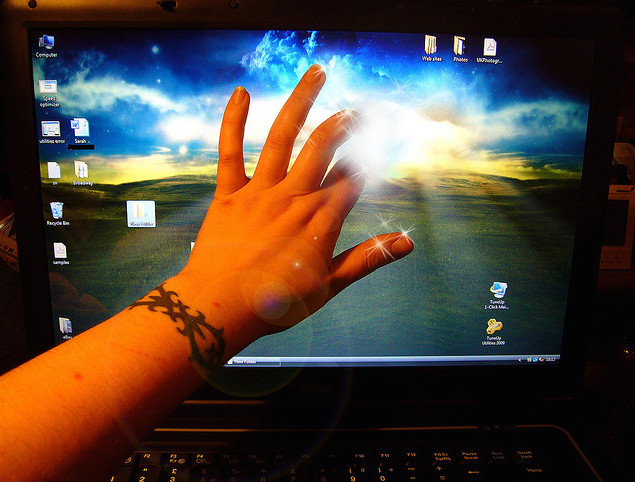rabble is expanding our Parliamentary Bureau and we need your help! Support us on Patreon today!
We are nearing the end of 2015. And, most days, after decades of innovation, our technology balances on a knife-edge between magical and maddening. Which is curious, given how long it had perched itself precariously on that same sharp precipice.
Growing up I remember the miraculous glow of black and white TV and the ridiculous ballet my brother and I would have to engage in to get channels 3 or 5 on screen, minus snow static.
I recall, in the ’80s, the Merlin-like power of being able to make games come to life via coding on an Atari 400, and the finger-numbing frustration of a membrane keyboard and the compile times that would test the patience of a refugee claimant.
Twenty years ago the PowerBook G3 allowed me to edit video in my lap, a near David Copperfield-level feat back then. But it was a chunky beast with a dim screen and a processor that screamed under the demands of rendering 15 frames a second.
Today we have phones with an order of magnitude more power than my old PowerBook and thousands of times more than my Atari 400. But they still haven’t become truly magical for many of us.
They are like a sleight-of-hand artist who holds us rapt and mystified until we see the ace up the sleeve, the deliberate push or the awkward misdirection. All it takes to forget that our mobile devices aren’t forged from Asgardian gems is a single crash, a dropped call or a Siri response that is laughably off-base.
And, ironically, it is an odd reality that despite all these foibles, the folks most intimate with the devices still consider them the most magical. It is, for example, far more likely that a programmer or gadget nerd will marvel with breathless wonder at a new tablet than would someone with a passing, means-to-an-end attitude towards technology.
For the neophyte, bathed in the warm, deceptive ethos of movie gadgets, our electronic devices should work 100 per cent of the time, exactly as advertised.
So, while a programmer will marvel that Google has a 93 per cent success rate at understanding spoken English, a neophyte will expect a perfect score and will be dismissive of anything less. Plus, gadget hounds suffer from both selective memory when it comes to devices they love and know how to route around failure. Neophytes approach technology suspiciously, expecting disappointment and the guilt of having done something wrong.
All of which is a shame, really. Because our devices are magical, human-created magic, to be sure, but magic nonetheless. We now have, with modern chip fabrication, millions of binary angels on the head of a pin. We have screens with resolutions finer than the pages of fashion magazines. We can store a million of those magazines on a wafer smaller than a baby’s thumbnail. Our scientists and engineers have mastered the natural laws that govern the electromagnetic spectrum and electrons themselves to such a degree that they can build circuitry as complex as Manhattan for a device we can hold in our hand. The genius and wonder of this is impossible for the rest of us to truly understand. All we know is that the damned things run out of power just when you need them most. That’s the thing about magic, it’s hard to see when life gets in the way.
Listen to an audio version of this column, read by the author, here.
Wayne MacPhail has been a print and online journalist for 25 years, and is a long-time writer for rabble.ca on technology and the Internet.
Image: Sarah/flickr
rabble is expanding our Parliamentary Bureau and we need your help! Support us on Patreon today!




